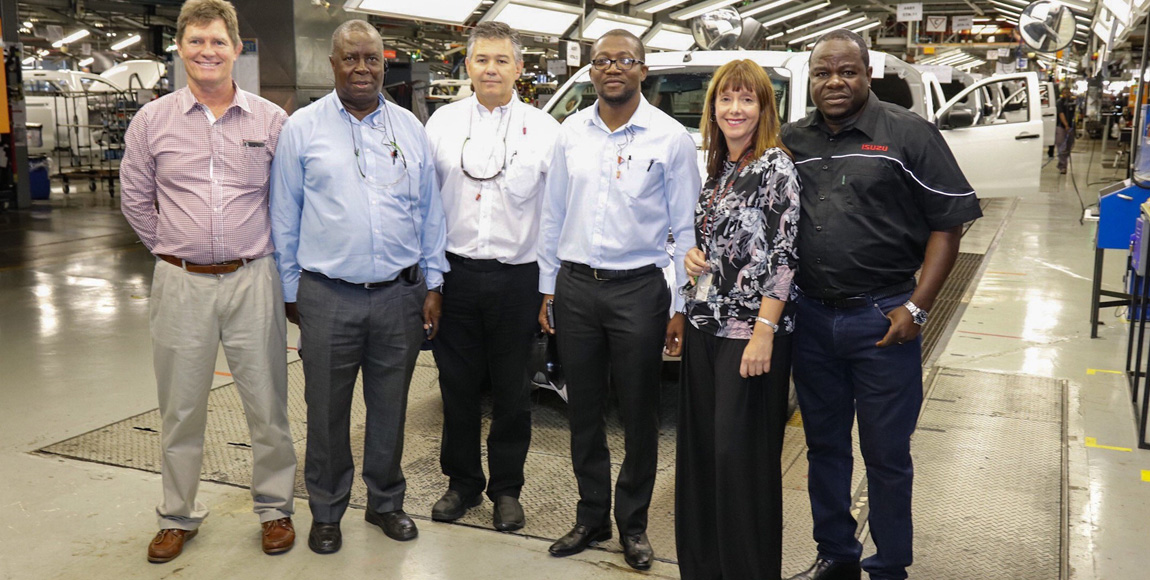
With a view to reviving large scale vehicle manufacturing in Zimbabwe, members of that country’s motor industry recently visited South Africa to see how local assemblers put together cars, bakkies, trucks and buses
Zimbabwe wants to resuscitate its vehicle manufacturing industry – and it has turned to South Africa for help. A delegation led by the country’s Minister of Industry and Commerce, Nqobizitha Mangaliso Ndhlovu (pictured above), recently held discussions on the matter with vehicle manufacturers in Cape Town and Port Elizabeth.
The delegation’s visit followed the launch last year of the Zimbabwe Motor Industry Development Policy (ZMIDP), which aims to drive up the country’s vehicle-assembly capacity from current levels of about ten percent to full production by 2030.
At the delegation’s meeting with Cape Town-based bus builder MCV SA, Ndhlov told the general manager, Awny Sadek, that the re-establishment of large-scale vehicle assembly operations in Zimbabwe was aimed at job creation, as well as at quickly and efficiently replenishing an aging public transport fleet. Equally, it would serve to encourage revitalisation of the country’s once-thriving components industry.
“The Zimbabwean government stands ready to support the motor sector. We are committed to its revival. We want to make it something of which the country can be proud,” he said.

According to members of the Zimbabwe delegation, objectives of the ZMIDP were to encourage local and foreign investment in Zimbabwe; to increase capacity utilisation of existing vehicle assemblers; to promote utilisation of available local raw materials, components and parts; to re-equip and replace obsolete machinery through technology transfer ventures; and to create employment opportunities.
“We are looking to establish joint ventures,” Ndhlovu told Sadek. “We need to resuscitate our local assemblers quickly and efficiently.”
Earlier, he and his delegation had met with representatives of Isuzu Motors South Africa, where it was revealed that Zimbabwe accounts for approximately 27 percent of the Port Elizabeth-based company’s African exports.
Corporate affairs executive Denise van Huyssteen said Isuzu welcomed Ndhlovu’s visit and an opportunity to showcase the company’s capabilities in truck and light commercial vehicle production.
“As Zimbabwe embarks on infrastructure development, we are able to offer innovative solutions to meet its needs,” she said.
Isuzu has been a consistently strong brand in Zimbabwe, achieving a 25 percent overall market share in 2018. “Isuzu has had a presence in Zimbabwe for more than 30 years, selling bakkies, SUVs, trucks and buses into the market. We value our relationship,” Van Huyssteen said.
Source: Focus On Transport And Logistics

